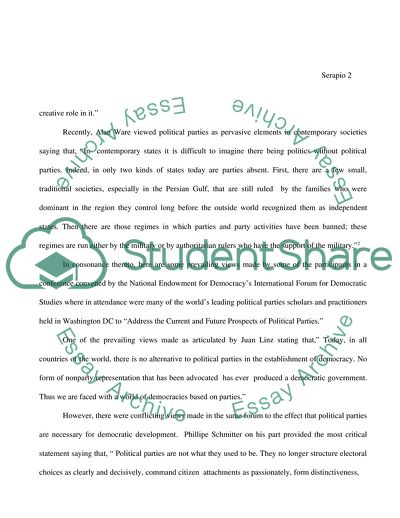Cite this document
(Title: effectice representational vehicle. ESSAY QUESTION: To what Coursework, n.d.)
Title: effectice representational vehicle. ESSAY QUESTION: To what Coursework. Retrieved from https://studentshare.org/politics/1718638-title-effectice-representational-vehicle-essay-question-to-what-extent-can-political-parties-provide-an-effective-vehicle-for-the-representation-of-individual-and-collective-interests
Title: effectice representational vehicle. ESSAY QUESTION: To what Coursework. Retrieved from https://studentshare.org/politics/1718638-title-effectice-representational-vehicle-essay-question-to-what-extent-can-political-parties-provide-an-effective-vehicle-for-the-representation-of-individual-and-collective-interests
(Title: Effectice Representational Vehicle. ESSAY QUESTION: To What Coursework)
Title: Effectice Representational Vehicle. ESSAY QUESTION: To What Coursework. https://studentshare.org/politics/1718638-title-effectice-representational-vehicle-essay-question-to-what-extent-can-political-parties-provide-an-effective-vehicle-for-the-representation-of-individual-and-collective-interests.
Title: Effectice Representational Vehicle. ESSAY QUESTION: To What Coursework. https://studentshare.org/politics/1718638-title-effectice-representational-vehicle-essay-question-to-what-extent-can-political-parties-provide-an-effective-vehicle-for-the-representation-of-individual-and-collective-interests.
“Title: Effectice Representational Vehicle. ESSAY QUESTION: To What Coursework”. https://studentshare.org/politics/1718638-title-effectice-representational-vehicle-essay-question-to-what-extent-can-political-parties-provide-an-effective-vehicle-for-the-representation-of-individual-and-collective-interests.


